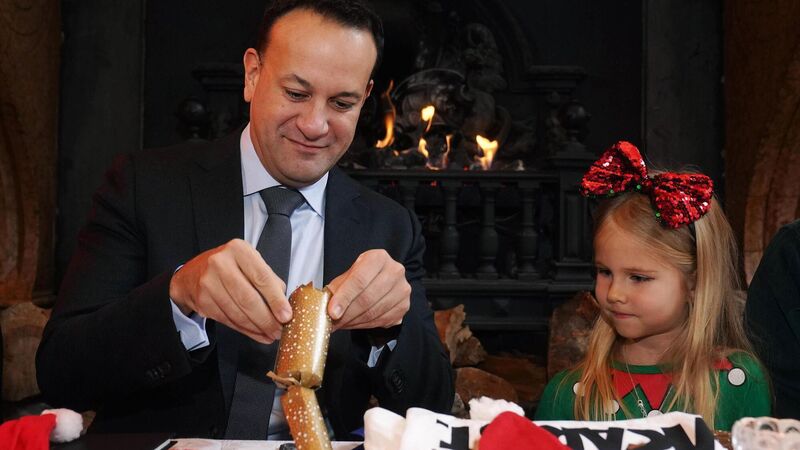Sarah Harte: Learn how to fail — and learn to embrace the normality of it

Taoiseach Leo Varadkar checks his Christmas cracker with Alina Chorna, five, from Ukraine, at Vicar St, Dublin. Picture: Brian Lawless
Last Saturday, when Leo Varadkar was confirmed as Taoiseach for the second time, he spoke about children and “making it possible to dream big dreams”. Two separate matters recently have caused me to wonder about our national attitude to success and failure.












